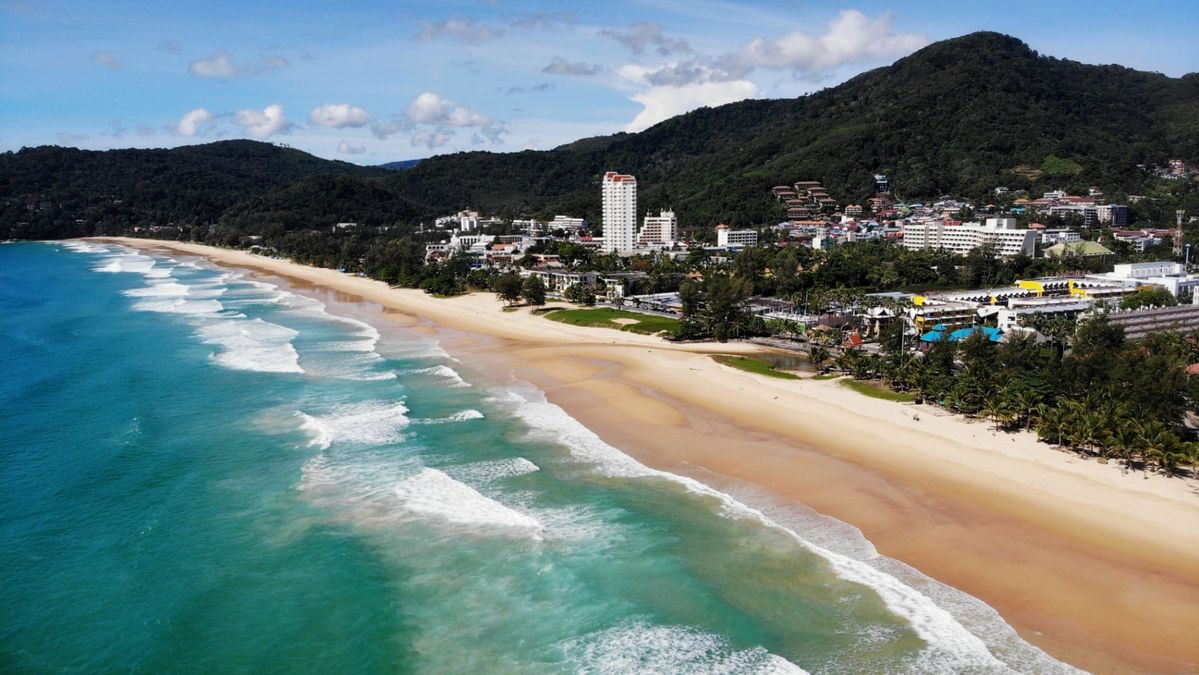Phuket to welcome vaccinated travellers with quarantine-free stays
Thailand bets that vaccination will be the key to restarting tourism.

Can Covid-19 vaccination bring back an industry shattered by the pandemic? A Thai resort island popular for its beaches is drawing up plans to fully reopen to vaccinated visitors by October to revive its wrecked tourism industry.
More than a dozen business groups including the Phuket Chamber of Commerce and the Phuket Tourist Association are planning to pool funds to vaccinate 70% of the island’s population above 18 without waiting for a government rollout.
They are betting that it’ll be safe to open the region to foreign tourists once the local population achieves herd immunity.
The plan, which will need government approval, also seeks to waive a mandatory 14-day quarantine requirement, a major hurdle for many potential travelers.
This will allow thousands of vaccinated Europeans who usually spend their winter months in Phuket to visit, according to Bhummikitti Ruktaengam, president of the tourist association.
The plan is the latest attempt to revive Thailand’s tourism-reliant economy. An earlier initiative to re-open Phuket to international visitors faced several delays before being realized in October, but response has been lukewarm as few travelers wanted to submit to quarantine.
A second wave of Covid-19 infections has also come as a further setback, prompting a fresh round of economic stimulus to support businesses and individuals.
Shuttered businesses
In 2019, Thailand received more than US$60 billion in tourism revenue from about 40 million visitors. The industry contributed about a fifth of gross domestic product before the pandemic, compared to about 10% globally.
On Thailand’s famed resort islands, the situation is particularly bad. Phuket got about 90% of its tourism income from foreign visitors before the pandemic. At Patong, its main tourist town, a once busy street of bars and nightclubs lies empty.
Bangla Road is lined with shuttered businesses, with chairs stacked on tables and chains barring access. Dust gathers on the barstools and countertops. The few places that are open have barely any customers.
“When there are no foreigners, the area is just empty,” said Rungarun Loiluen, who works at The Kitchen, a restaurant and bar at the end of Bangla Road.
She’s one of eight employees who kept their jobs from about 30 before the pandemic, albeit with fewer working hours. “There’s barely anyone walking down the road.”
On the next block over, Hotel Clover Patong Phuket has slashed its prices by as much as 75% to attract domestic travelers instead of its usual clientele of American, Russian and Chinese tourists.
Still, it ran at about 10% occupancy in December, a period that used to be overbooked, according to Jessada Srivichian, the hotel’s country financial manager.
Despite the government’s efforts to help tourism businesses, such as subsidizing the cost of hotel rooms, meals and airfares, domestic tourists who usually travel just on weekends can’t fill the gap left by foreign visitors.
Even though only about half the country’s hotels have reopened, the average occupancy rate is only about 34%, Yuthasak Supasorn, governor of the Tourism Authority of Thailand, said in an interview in December.
A matter of survival
“We can’t wait any longer. If we have to wait, we won’t survive,” said Bhummikitti, whose association represents about 300 members including luxury resort and five-star hotel operators. “If we miss this winter peak season, we’d have to wait another year.”
Under the plan, called “Phuket First October,” the tourism industry will import vaccines through private firms and may acquire shots from Sinovac Biotech, the Chinese maker whose vaccine is expected to be approved by the Thai regulator this month.
The government vaccine rollout is expected to achieve herd immunity only by 2022, according to health ministry officials.
With the Thai tourism industry racking up losses and hundreds of thousands of jobs at risk, William Heinecke, chairman of Minor International, which runs more than 500 hotels across 55 countries, last week urged Prime Minister Prayuth Chan-Ocha to prioritize tourism workers along with frontline and healthcare employees for inoculation.
The move could facilitate quarantine-free travel for people with ‘vaccination passports,’ Heinecke said in a letter to the prime minister.
“The quarantine is the issue,” Markland Blaiklock, deputy chief executive officer of Centara Hotels & Resorts, a hospitality unit of Central Plaza Hotel, said in an interview Wednesday.
“People aren’t going to come to Thailand for business or for a two-week vacation if they have to spend two weeks in quarantine on arrival. So we really hope that they can be relaxed.”
Both Blaiklock and Heinecke said that Phuket would be a good pilot site to test the elimination of quarantine.
Once it’s successful, the model can be rolled out to other destinations in Thailand, Heinecke said, citing the example of Seychelles which last month announced quarantine waivers for vaccinated visitors.
“Phuket has always been a huge contributor to the Thai economy,” Bhummikitti said. “Today, we’re standing up to take control of the situation. We don’t have a lot of money now but we’re giving one last push, hoping that this will save us.”
This article is published under license from Bloomberg Media: the original article can be viewed here